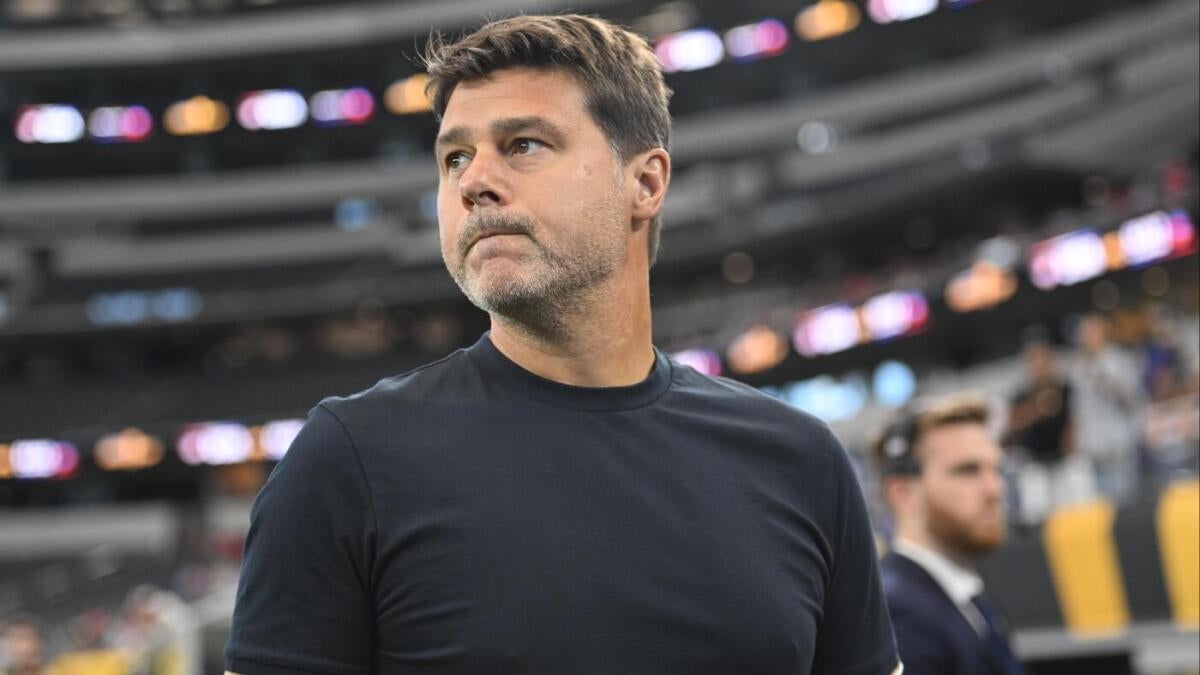Mauricio Pochettino’s appointment as the head coach of the U.S. Men’s National Team (USMNT) in 2024 is a pivotal moment for American soccer. Tasked with leading the team toward success in the 2026 FIFA World Cup, which the United States will co-host, Pochettino’s tenure is met with high expectations, scrutiny, and a series of complex challenges. His leadership, tactical philosophy, roster decisions, and public perception are all critical factors that will shape the future of U.S. Soccer.
A Vision Rooted in Experience and Ambition
At 52 years old, Mauricio Pochettino brings a wealth of experience from his tenure with top European clubs, including Tottenham Hotspur and Chelsea. His reputation for developing young talent, emphasizing tactical discipline, and fostering cohesive team dynamics positions him as a transformative figure for the USMNT. Pochettino’s vision extends beyond immediate success; he aims to elevate the United States to a top international ranking within five to ten years. This long-term project involves integrating players from both Major League Soccer (MLS) and European leagues, creating a competitive environment that pushes the squad to adapt and improve.
Pochettino’s approach is not just about short-term gains but about building a sustainable system. His emphasis on structured play and tactical flexibility is designed to prepare the USMNT for the rigors of international competition. By blending the raw athleticism of American players with the technical prowess of those playing in Europe, Pochettino seeks to create a team that can compete with the best in the world.
Tactical Style: A Balancing Act Between Patience and Pace
Pochettino’s coaching style is characterized by a deliberate, possession-oriented approach. This method contrasts with the traditional American style, which often relies on quick transitions and athletic prowess. The challenge for the USMNT will be to adapt to this more nuanced style without losing their natural strengths. Early indications suggest that a period of adjustment will be necessary, as players learn to modulate their tempo and embrace a more calculated rhythm.
The question of whether the USMNT can successfully integrate Pochettino’s tactical philosophy before the 2026 World Cup is a critical one. The team’s ability to balance patience and pace will be crucial in determining their success. Pochettino’s experience in managing top European clubs suggests that he has the expertise to guide the team through this transition, but it will require patience and adaptability from both the players and the coaching staff.
Navigating Squad Selection and Internal Dynamics
Pochettino is known for making bold roster decisions to maintain high standards and foster competition within the team. His willingness to omit established players, such as Josh Sargent, and manage star figures like Christian Pulisic, highlights his commitment to a coherent team strategy. However, these decisions have not been without controversy. Pulisic’s public disagreement with Pochettino’s decisions, including his decision not to participate in certain friendlies, underscores the tensions that can arise within a team.
Navigating these internal dynamics is critical for maintaining team harmony. Pochettino’s resolute public stance as head coach emphasizes his commitment to authority and a clear team strategy. However, managing these relationships sensitively will be essential to ensuring that the team remains cohesive and focused on their goals.
Media Narratives and Public Perception
Since taking the helm, Pochettino has faced speculation about his future, including rumors of interest from Premier League clubs like Brentford and Tottenham Hotspur. Despite these reports, Pochettino has consistently denied interviewing for these positions, emphasizing his dedication to the USMNT and the upcoming 2025 Gold Cup and World Cup preparations.
These rumors, however, have created distractions that test Pochettino’s ability to maintain focus and inspire confidence among fans and players. His outspoken dismissal of these rumors indicates his professional intent to avoid distractions and signals his ambition to invest fully in the US project. Managing public perception and media narratives will be an ongoing challenge, but Pochettino’s experience in high-pressure environments suggests that he is well-equipped to handle these challenges.
Challenges and Opportunities Ahead
Pochettino’s tenure begins at a critical juncture for U.S. Soccer. The team seeks reinvigoration after underwhelming performances, including early exits from tournaments like the Copa America. With only two years until the 2026 World Cup, time is of the essence. Integrating youth prospects while ensuring experienced leaders provide stability is an intricate balancing act. Additionally, aligning diverse player backgrounds—MLS vs. Europe, different playing styles, and competitive experiences—presents both a challenge and a unique opportunity to build a versatile and resilient squad.
The influx of financial backing and organizational ambition from U.S. Soccer, including support from affluent stakeholders, contributes resources that can bolster infrastructure and competitive edge. Pochettino’s work with elite players and his strategic mindset could leverage these assets effectively. His ability to integrate these resources into a cohesive team strategy will be crucial in preparing the USMNT for the challenges ahead.
Conclusion: A New Era of Ambition with Complex Realities
The hiring of Mauricio Pochettino represents a bold, strategic move by U.S. Soccer to elevate the men’s national team onto the world stage with a fresh tactical identity and a strong managerial pedigree. His challenge transcends mere coaching; it involves reshaping a nation’s soccer culture, developing a golden generation, and harnessing both talent and temperament for sustained success.
While his deliberate style may initially contrast with the USMNT’s traditional strengths, the potential for growth and refinement is significant. Navigating internal dynamics, media pressures, and the impending World Cup timeline will require deft leadership. Ultimately, Pochettino’s tenure will be judged not just by results, but by how he crafts a cohesive, competitive team that embodies a new era of American soccer—one capable of competing at the highest level and inspiring a nation passionate for the beautiful game.

